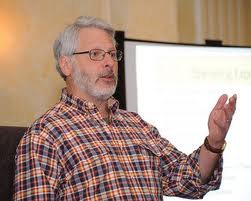 Rudy Fichtenbaum, president of the American Association of University Professors, questions whether lowering standards is the way to go to produce more graduates and in a more timely fashion.
Rudy Fichtenbaum, president of the American Association of University Professors, questions whether lowering standards is the way to go to produce more graduates and in a more timely fashion.
A proposal in Florida would let online courses forgo the usual higher education accreditation process, while a California legislator introduced a measure that would have substituted online courses for some of the brick-and-mortar kind at public universities.
Some campuses of the University of North Carolina system are mulling getting rid of history, political science, and various others of more than 20 “low productive” programs. The University of Southern Maine may drop physics.
And governors in Florida, North Carolina and Wisconsin have questioned whether taxpayers should continue subsidizing public universities for teaching the humanities.
Under pressure to turn out more students, more quickly and for less money, and to tie graduates’ skills to workforce needs, higher education institutions and policy makers have been busy reducing the number of required credits, giving credit for life experience, and cutting some courses, while putting others online.
Now critics are sounding the alarm that speeding up college and making it cheaper risks dumbing it down.
“We all want to have more students graduate and graduate in a more timely manner,” says Rudy Fichtenbaum, president of the American Association of University Professors. “The question is, do you do this by lowering your standards?”




















